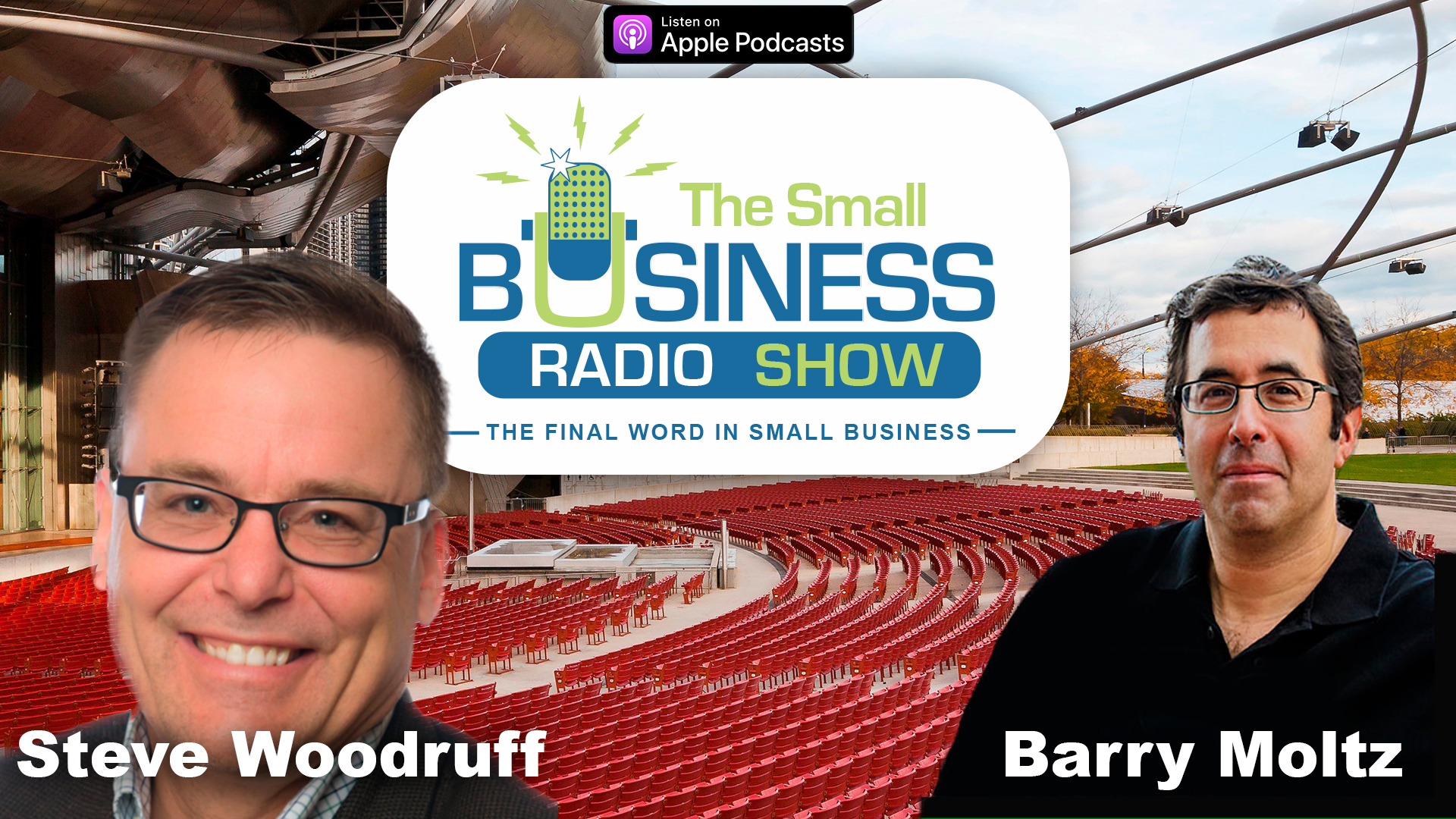On this episode of The Small Business Radio Show…
We first talk about how small businesses can stand out in a noisy marketplace. When there is a lot of noise in the marketplace, it makes it much more difficult for your company to be heard. But even if you are heard, you have to deal with all the distractions flying at your customer in order to keep their attention. We show you how to succeed in these two very important moments of truth so that you can get heard and then get referred.
Then, it has now been 10 years since the Great Recession – how long can this economy keep going? And what do we do as small business owners when it bottoms out? We predict when the next recession will hit and show you what you can be doing to prepare for it.
Finally, does anyone who works for you as an employee or freelancer work remotely? The answer is almost always yes. We live in the world of a virtual workforce and adopting effective habits to work with teams that doesn’t see each other every day is challenging, but the right tools can help. We show you the best tools small businesses use to communicate with and keep track of their remote employees.
Listen to The Small Business Radio Show
Listen to “#522 Get Heard and Get Referred by Succeeding in the Two Moments of Truth” on Spreaker.
Segment 1: Steve Woodruff is known as the King of Clarity. In this world full of noise and distraction, Steve helps businesses craft a message so clear that they can be heard, remembered, and referred. In over 30 years of business experience, he has consulted with companies ranging from solo startups to Top Five Pharma. He is the author of “Clarity Wins: Get Heard, Get Referred”.
1:45 – How bad is the “noise” problem in the marketplace for small business?
4:15 – How can small (or micro-) companies succeed in such a crowded and noisy marketplace?
7:00 – What is a “memory dart” and how is it different than an “elevator pitch”?
8:45 – There’s nothing wrong with being pigeon-holed. Why?
10:00 – How to use stories, snippets, and symbols to activate potential referrals.
12:45 – How authenticity can help you find clarity, build a strong brand, and gather your tribe.
Segment 2: Joshua Davidson has been on a mission with his team to help as many entrepreneurs as possible. To date, ChopDawg.com has helped launch over 250 web and mobile applications for startups, SMBs, non-profits and Fortune 500’s around the world. Named one of the Top 100 Marketing Influencers in the world, Joshua’s work has been featured by Forbes, MSNBC, Fox, CBS, and Startup Grind. He has a new book, “The Entrepreneur’s Framework: How Businesses Are Adapting In The New Economy”.
20:30 – You started your first company in in the Great Recession back in 2009. WHY?
23:45 – What was the digital environment like in 2009 when you first started your business?
25:30 – Should small business owners be worried about the next recession?
26:15 – What’s your prediction for when the next recession hits?
28:30 – What can small businesses do to prepare for the next economic downturn?
32:30 – How do you balance being cautious of the next recession and making investments you need to make to grow and sustain your business?
Segment 3: Dave Nevogt is the co-founder of Hubstaff.com which helps virtual teams communicate better through automatic time tracking and activity tracking. He’s been running online businesses since he was 23, and now manages a team of 45 remote employees. Dave has been honored as one of Indianapolis’s top 40 under 40 entrepreneurs, and focuses on helping others manage remote teams.
38:00 – Communication is perhaps the biggest challenge of having remote employees. What are the best tools to use to overcome communication challenges?
41:45 – The advantages and dangers of chat tools in business. Should there be certain rules in place for company chat tools?
44:00 – What role does time tracking play in remote work? Should the time of remote workers be closely tracked or should the output shift to be more output-oriented rather than time-oriented?
47:00 – How Hubstaff helps small businesses keep track of and communicate with remote workers.
48:30 – What if the employees are uncomfortable with so much monitoring?
50:00 – What is the future of remote work?
Sponsored by Nextiva and Corporate Direct

